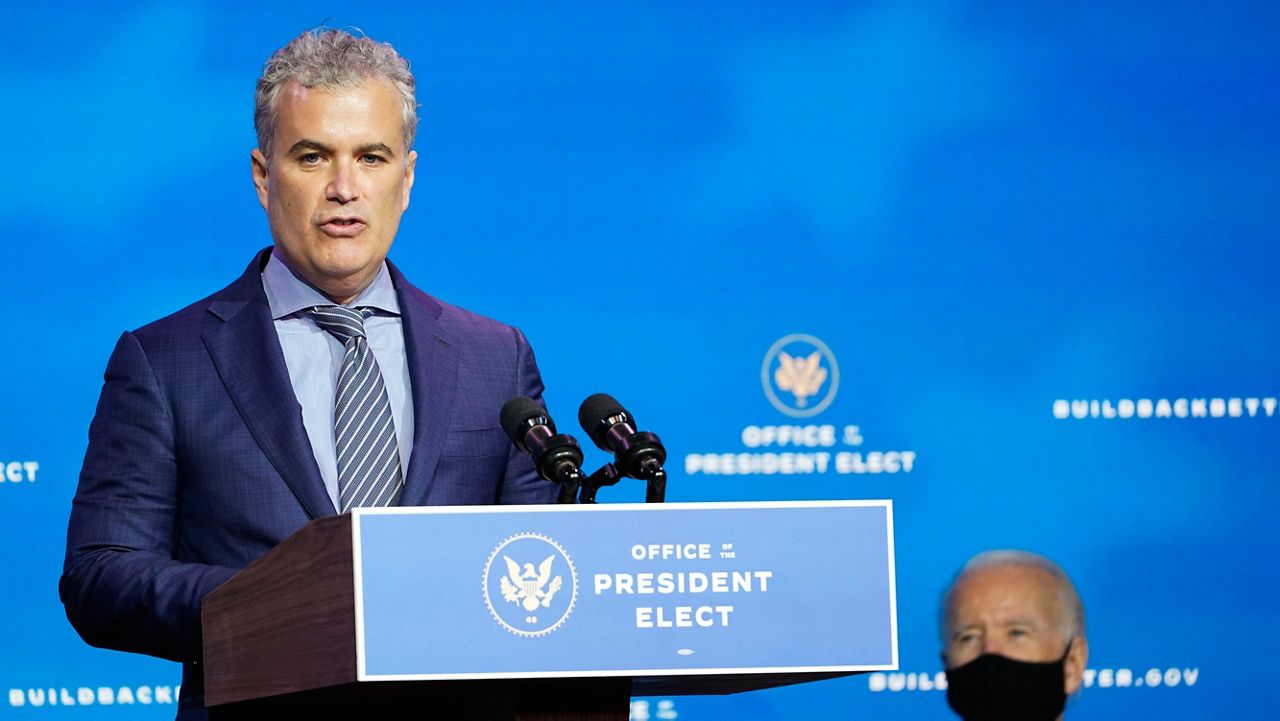President Joe Biden announced a shake-up at the White House on Friday, officially confirming that longtime Chief of Staff Ron Klain will step down from his role and will be replaced by former COVID-19 czar Jeff Zients.
Klain, who has served as Biden's top aide since the first day of his administration, was expected to leave his role in the coming weeks, according to those familiar with his plans. Sources said that the president was expected to tap Zients, who served as the White House Coronavirus Response Coordinator from January 2021 to April of last year.
“The halfway point of your first term - with two successful years behind us, and key decisions on the next two years ahead — is the right time for this team to have fresh leadership,” Klain wrote in his resignation letter to Biden. “I have served longer than eight of the last nine Chiefs of Staff, and have given this job my all; now it is time for someone else to take it on.”
Klain called Biden's confidence in him to hold the role of chief of staff "the honor of a lifetime."
In a lengthy statement, Biden heaped praise on the outgoing Klain, who the president has worked with for decades, dating back to his time serving on the Senate Judiciary Committee. In his role, Klain was central to much of the panel's work, including overseeing Supreme Court nominations.
"During the last 36 years, Ron and I have been through some real battles together. And when you’re in the trenches with somebody for as long as I have been with Ron, you really get to know the person," the president wrote. "You see what they’re made of."
After his time working with Biden on the Senate Judiciary panel, Klain worked on Bill Clinton's 1992 presidential campaign and later worked in the Clinton administration, leading the team that shepherded Ruth Bader Ginsburg's Supreme Court nomination. He later served as chief of staff to Attorney General Janet Reno and Vice President Al Gore, later serving as general counsel of Gore's Recount Committee in the 2000 presidential election. The longtime Democratic operative worked on a number of campaigns, including John Kerry's unsuccessful 2004 White House bid, before becoming then-Vice President Biden's chief of staff in 2009. He later served as White House Ebola Response Coordinator under President Barack Obama.
"When I was elected President, I knew that I wanted Ron to lead the White House staff," he continued. "He was uniquely qualified given his prior public service. He knows how government works, how politics works, how Congress and the White House works."
Biden hailed the accomplishments that his administration was able to achieve in the last two years, including economic recovery from the COVID-19 pandemic, passage of the Bipartisan Infrastructure Law, appointing Ketanji Brown Jackson to the Supreme Court and addressing climate change, crediting Klain for their success.
"This progress will be the legacy of this White House team, working under Ron’s leadership," the president said. "And while we have accomplished an extraordinary amount, the real mark of Ron’s success is that he is beloved by the team he leads here at the White House. They’re going to miss him just as much as I will."
The president emphasized the importance of finding someone to replace Klain with "someone who understands what it means to lead a team, and who is as focused on getting things done," which led Biden to tap Zients for the role.
Zients, a successful businessman, joined the Obama administration in 2009, eventually serving twice as Director of the Office of Management and Budget in an acting capacity in 2010 and from 2012-13. He is credited with leading the team that fixed the HealthCare.Gov website after a buggy rollout and later served as Director of the National Economic Council. Zients later served as co-chair of Biden's presidential transition before assuming the role as the White House's COVID-19 czar, overseeing the vaccination campaign rollout.
"When I ran for office, I promised to make government work for the American people," Biden wrote. "That’s what Jeff does. A big task ahead is now implementing the laws we’ve gotten passed efficiently and fairly."
Zients joins the White House at a critical juncture: Overseeing the implementation of Biden's ambitious infrastructure law and the sweeping health care, climate change and tax reform law, the Inflation Reduction Act, while dealing with a chamber of Congress under Republican control, a special counsel probe into classified documents found at Biden's Delaware home and former institute in Washington, and the prospect of a re-election campaign in 2024.
Biden has said that he “intends” to campaign for another term, and his staff has begun preparations ahead of an expected formal announcement in the spring but has said that the president has not made a formal decision.
An event will be held next week to thank Klain for his service and welcome Zients back to the White House, according to Biden's statement.
The Associated Press contributed to this report.



